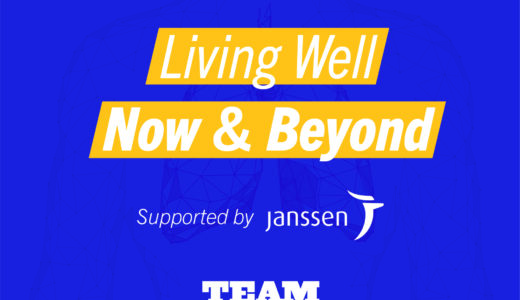April 2017 is Donate Life Month

April is Donate Life Month, and Team Phenomenal Hope wants to raise awareness to this very important cause celebrate the incredible generosity of those who have saved lives by becoming organ, tissue, marrow, and blood donors. Right now, more than 134 million people are registered across the United States (excluding living donations), but increasing that number means saving more lives through donation. Many patients living with pulmonary hypertension in the United States are waiting for a transplant. Signing up to be a donor is one way that you could potentially save a life.
There is a great need for organ donors in the United States.
Did you know?
- Every 10 minutes another person is added to the waiting list
- Right now 118,188 people need a lifesaving organ transplant
- A single tissue donor can help more than 75 people
- Each day, 22 people die waiting for an organ transplant
What types of donation is available?
Living donation
Living donation occurs when a healthy person donates a kidney or part of the liver, lung, intestine, pancreas, bone marrow, or blood to another living person.
Deceased
This type of donation is the process of giving an organ or a part of an organ, at the time of the donor’s death.
Vascularized Composite Allografts (VCA)
Vascularized Composite Allografts (VCAs) involve the transplantation of multiple structures that may include skin, bone, muscles, blood vessels, nerves and connective tissue. The most commonly known type of VCAs are for hand and face transplants.
Average Median Wait Time for a Transplant
Kidney
5 years
Liver
11 months
Heart
4 months
Lung
4 months
Kidney/Pancreas
1.5 years
Pancreas
2 years
Organ Donation Myths
Myth: If I donate organs, I can’t have a funeral
Truth: Recovery of organs does not interfere with a persona ability to have a funeral. If a person is an organ and tissue donor and open casket funeral is possible. The donor’s body is clothed for burial, so there are no visible signs of organ or tissue donation
Myth: If I am an organ donor and in a serious accident, there will be less effort to save my life.
Truth: When you go to a hospital for treatment, doctors always focus on saving your life. If you are an organ donor and all options have been exhausted only at that time will the conversation begin about how to proceed.
Myth: I am too old to donate.
Truth: very few medical conditions automatically disqualify you from organ donation. It may turn out that some organs can’t be used but that other organs and tissues are fine and you can still save a life (or many). Don’t disqualify yourself just because of age. Only a medical professional can determine this.
Myth: Rick and famous people get organs first which isn’t fair.
Truth: Money can’t buy you organs. This is a myth most likely because of the hype and media coverage when a celebrity receives a transplant. Financial status are not considered in organ donation.
Myth: Having it noted on your driver’s license is enough for your organs to be donated.
Truth: Before a donation takes place the family is consulted. It’s important that you have had this discussion with them and that everyone is on the same page. If your family isn’t aware your wishes may not be carried out as planned.
What can be done to save more lives?
Sign up to be an organ donor
When you register, most states let you choose what organs and tissues you want to donate, and you can update your status at any time. You can sign up online or in-person at your local motor vehicle department. Living donations is a different process. Learn more about that here.
Get involved and volunteer
There are plenty of ways to get involved and make a difference in the lives of people waiting for a transplant. From helping to raise awareness by sharing materials to connecting to an organ donation organization you can find one that’s right for you.
Resources
Centers for Disease Control and Prevention: https://www.cdc.gov/transplantsafety/overview/key-facts.html
Center for Organ Recovery & Education: https://www.core.org/
Donate Life America: https://www.donatelife.net/wp-content/uploads/2016/06/2017-NDLM-Donation-and-Transplantation-Statistics-FINAL_Rev11017.pdf (PDF)
Mayo Clinic: http://www.mayoclinic.org/healthy-lifestyle/consumer-health/in-depth/organ-donation/art-20047529
United Network for Organ Sharing: https://www.unos.org/
US Department of Human Services: Organ Donation: https://www.organdonor.gov/statistics-stories/statistics.html#glance



